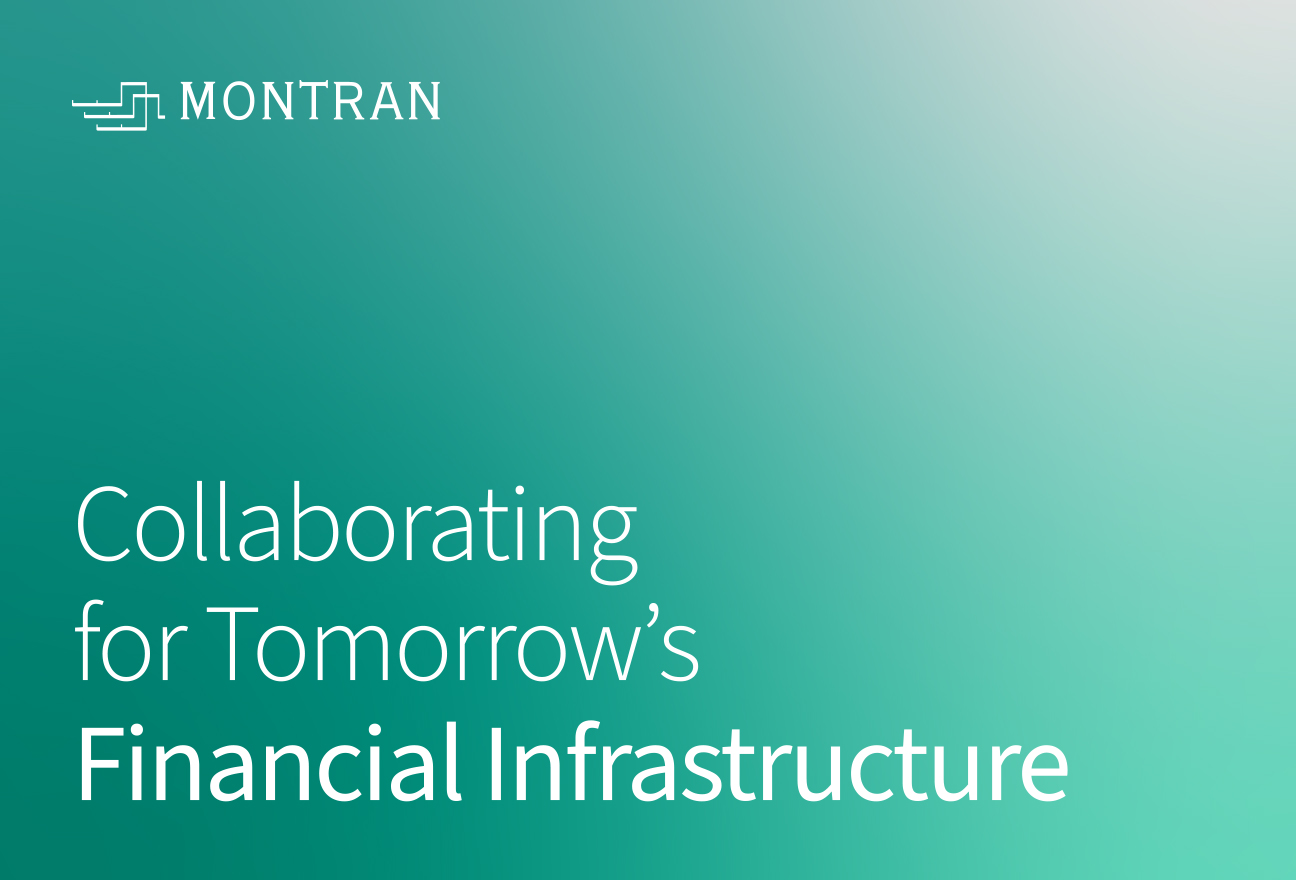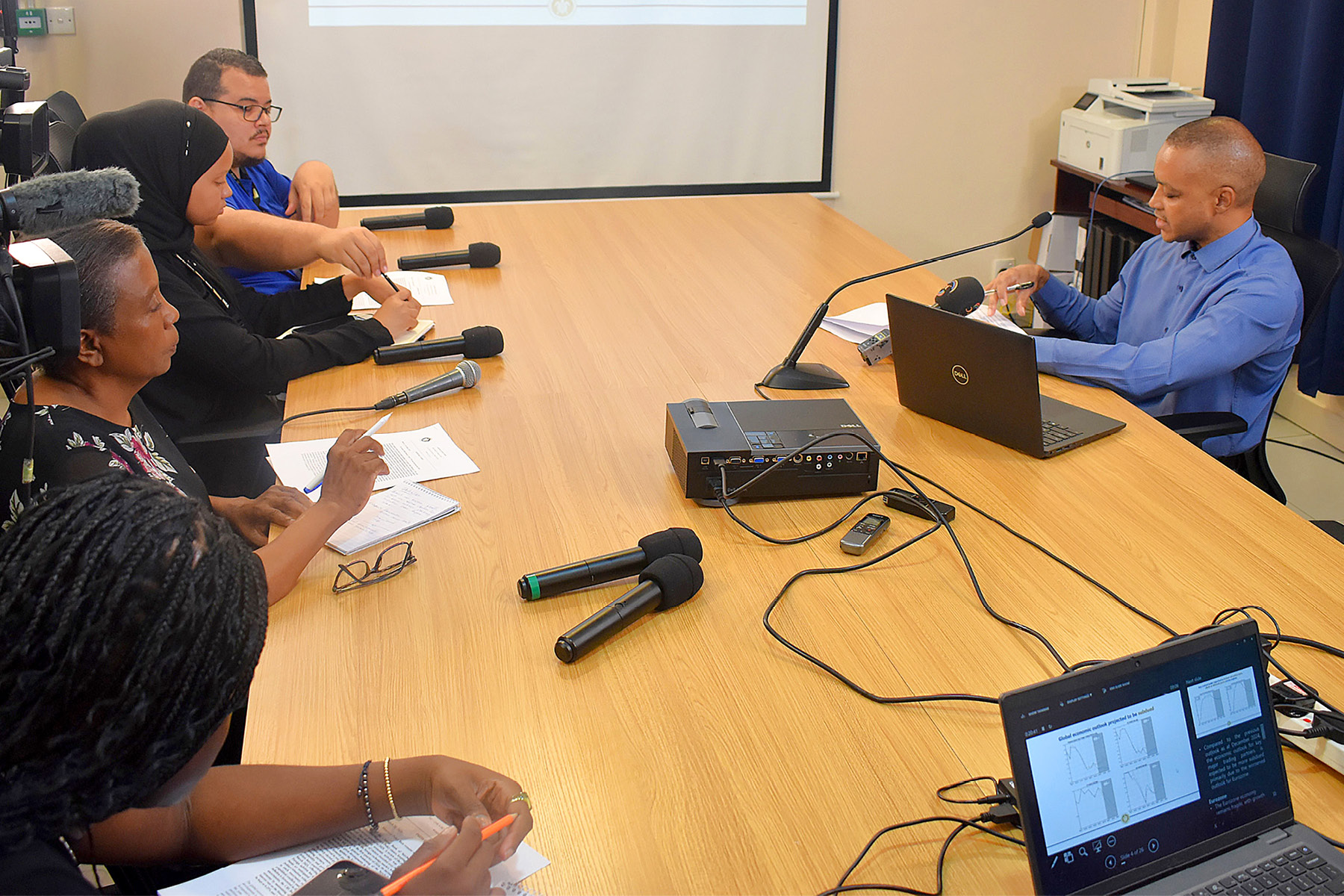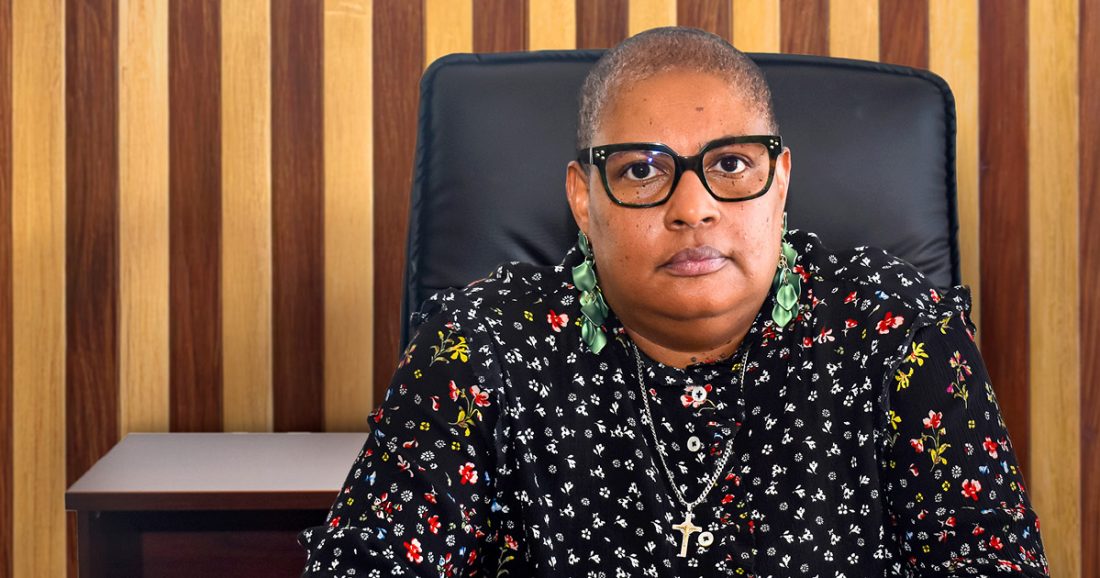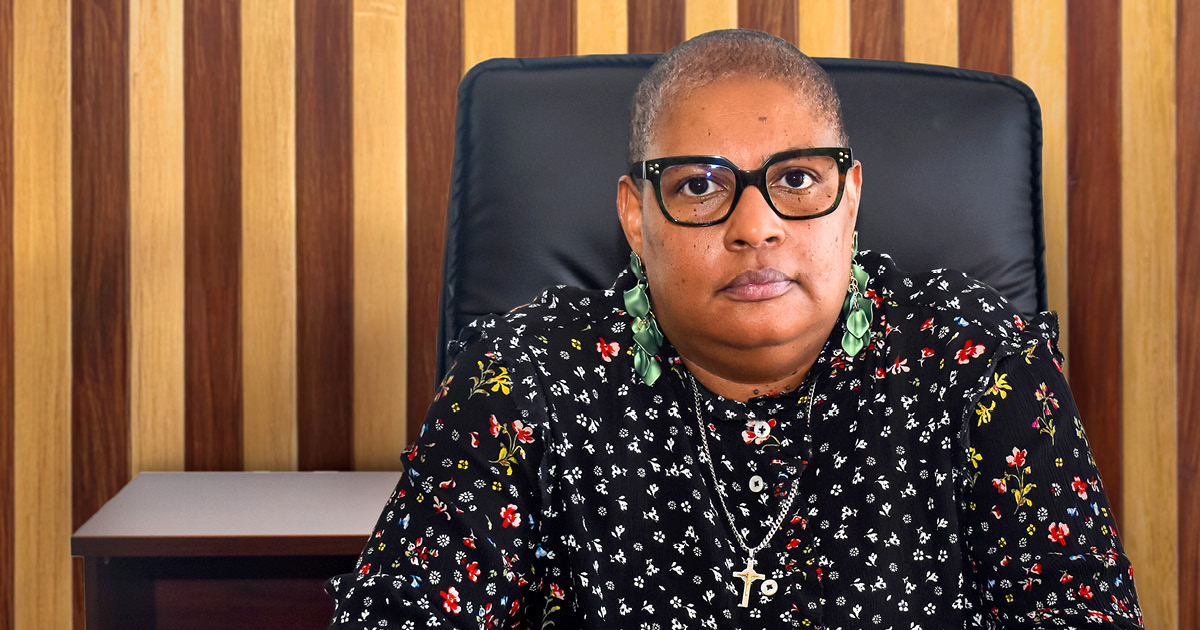When Caroline Abel joined Central Bank of Seychelles as a junior staff member in 1994, she could never have predicted that three decades later, she would be Governor of the institution.
“I progressed over time with all of the opportunities that this institution gives in terms of capacity building, exposure to other institutions, both local and international, and long-term training,” Abel tells The CEO Magazine. “So I moved up the ladder following these various opportunities.”
In addition to the degree in economics that Abel completed at the University of Leeds in 1999, she was also given the opportunity to study a master’s in monetary economics and finance at the University of Glasgow in 2005 through Central Bank of Seychelles’ training system for professional qualifications.

“The decisions we make as a bank, most of the time will impact the economy.”
This mentality, which nurtures and encourages employees to reach their highest potential, both within the bank and in their personal lives, is one that means many, like Abel, remain with the bank long-term. In 2012, she was recommended for the appointment of Governor, a role with a six-year term.
“I’ve done two terms already and was reappointed for a third term last March,” she says. “So this has been the journey from junior to ultimately taking the helm.
“I’ve seen the changes that have happened within the institution and also externally in the economy. I have also participated in a lot of the initiatives, particularly the economic reforms that the country has undertaken together with international institutions.”
Leading by example
When it comes to her approach to leadership, Abel maintains that as with any business, transparency is the most important factor.
“The decisions we make as a bank, most of the time will impact the economy,” she explains. “So transparency has been a critical point. Whatever the bank decides is communicated with the public.”

Advertisement
By conducting live press conferences, representatives from Central Bank of Seychelles are able to answer questions from journalists immediately, helping the local community to engage with the bank directly and build trust.
“This communication is precious for us and will always remain a focal element in what we do,” Abel insists. “Every year we assess how we can improve that communication further.
“This is essential because over time the bank has received mandates and when you are executing those mandates, the general population and the private sector need to understand the role you have been given and the tough decisions that may need to be made.”
Collaborative approach
Given Seychelles is a small island country, the bank’s operations and strategies are heavily influenced by the country’s size and dependence on the external economic environment. Collaboration is integral to its success, with stakeholders, government ministries and agencies, as well as suppliers, such as multinational financial services provider Montran Corporation, vital cogs within the bank’s ecosystem.
“We work collaboratively with all stakeholders because we have to make sure that the country has the right frameworks, particularly if there are international commitments,” Abel points out.
“We are represented at forums and national formal committees to ensure that we make a contribution, and that the overall agenda or strategy of those various settings are communicated internally so we can act on them.”

“We discuss topical areas that are becoming more important in the world and locally.”
Having been part of the Alliance for Financial Inclusion – a global collection of central banks and supervisors that meet to share best practices – since 2014, Central Bank of Seychelles is continually reassessing its policies and plans for the future.
“We discuss topical areas that are becoming more important in the world and locally,” Abel says. “So we make sure that we work on those frameworks and have an exchange on various topics of interest at the same time as building the capacity of our team members.”
Future focus
Sustainability is increasingly becoming a major focus for Central Bank of Seychelles, despite it not necessarily being a major issue within financial systems, as Abel puts it. Through the approval of the Resilience and Sustainability Facility by the International Monetary Fund, the organization is working on integrating sustainability into its business practices.
“We are working to incorporate climate matters into our supervisory mandate so that we can provide better guidance to our financial institutions and also participate at a national level on the global agenda of climate change,” she reveals.
“As the second year under this program, we will have more outputs this year to make sure that we push sustainability and see what we can do to green our economy.”

“We need to think of future generations and what platform we are creating now for them to have an elevated standard of living.”
According to Abel, the next chapter for Central Bank of Seychelles holds several key strategic developments, the first of which is to utilize technology more effectively.
“In our context it has been moving from a manual system to using more technology to enhance the processes that we have,” she says.
“As part of that process, we are looking at how financial services can be delivered in a more digital way, but are mindful that we look at our population, as they need to be comfortable using technology. So we are showing the public how technology can enhance efficiency.
“If we continue the way we are going, in the next five years we will have an economy that is more digitized and brings benefits for everyone.”
Abel admits that one challenge in this regard is working on changing certain approaches and mindsets within the private sector as well as the financial systems, as both need to be proactive in order for modernization and the resultant inclusivity to occur.
“We cannot continue to do the same thing when the world is changing,” she reflects. “At the end of the day, we need to think of future generations and what platform we are creating now for them to have an elevated standard of living.”




